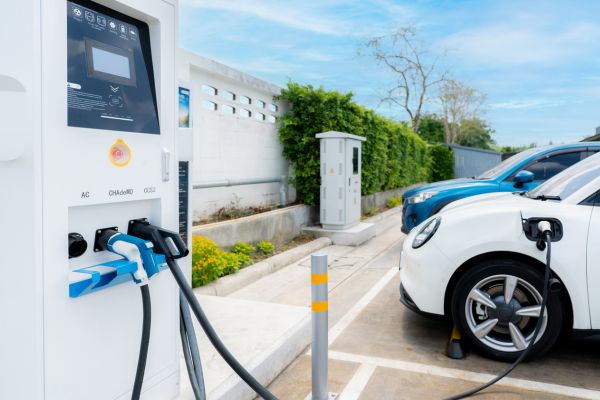So, you’ve been thinking about making the switch to an EV. Maybe you’re tired of gas prices punching holes in your wallet, or maybe you just want to do your part for the planet. Either way, the big question everyone asks is simple: what’s the real cost of owning an electric car? On the surface, EVs seem cheaper in the long run, but the reality has a few twists you’ll want to know before you sign those papers.
Upfront Purchase Price
Let’s be real—most electric cars still come with a higher sticker price compared to their gas-powered cousins. In 2025, the average EV in the U.S. sells for around $45,000, while a similar gas model might cost closer to $35,000. Sure, there are budget-friendly EVs like the Chevy Bolt or Nissan Leaf, but if you’ve got your eye on a Tesla Model Y or a Rivian, you’re looking at premium pricing.
The thing is, the cost of owning an electric car isn’t just about what you pay upfront. Incentives and rebates can chip away at that number. Federal tax credits still exist for many models, and some states even add their own discounts. If you factor those in, the gap between EVs and gas cars doesn’t look quite as scary.
Charging vs. Gasoline Costs
This is where EV owners usually start smiling. On average, charging an electric car at home costs about 4 to 5 cents per mile. Compare that to 12 to 15 cents per mile for gasoline, depending on where you live and how wild gas prices get. Over the course of a year, that difference adds up—easily saving you hundreds, if not over a thousand, in fuel costs.
Of course, not all charging is created equal. Public fast chargers can be pricey, sometimes close to what you’d pay for gas. But most owners do about 80% of their charging at home, overnight, when electricity rates are lower. That’s where the real savings stack up.
Home Charging Setup
Here’s a cost people forget about: the home charger. Technically, you can plug your EV into a regular outlet, but it’s slow. Like, painfully slow. Most owners invest in a Level 2 home charger, which runs between $500 and $1,500 for the hardware, plus installation. If your garage needs electrical upgrades, tack on a bit more.
But once that charger is in, life gets a whole lot easier. You wake up every morning to a “full tank,” and honestly, you’ll never miss gas station lines. That convenience is worth the upfront investment, even if it stings at first.
Maintenance and Repairs
Here’s where EVs really shine. With fewer moving parts—no oil changes, no spark plugs, no exhaust systems—the maintenance side of the cost of owning an electric car is a big win. Most owners spend about 30% less on upkeep compared to traditional vehicles.
That said, repairs can be a double-edged sword. If something goes wrong with the battery or high-voltage systems, the bill isn’t small. Warranties usually cover the battery for 8 years or 100,000 miles, but once you’re outside that window, replacement costs can run between $8,000 and $15,000. Thankfully, batteries are lasting longer than many skeptics predicted, so for most people, it’s not something you’ll face anytime soon.
Insurance Costs
Here’s a surprise for a lot of buyers: insurance on EVs tends to be higher. Why? Because parts and labor are still more expensive, and not every repair shop is equipped to handle electric vehicles. Depending on your location, your premium could be 10–20% higher than what you’d pay for a gas car.
The silver lining? Some insurers now offer EV-specific discounts or eco-friendly driver perks. It’s worth shopping around because the gap isn’t as wide as it used to be.
Depreciation and Resale Value
Remember when early EVs lost value like crazy? Times have changed. With demand for used EVs growing, depreciation isn’t as brutal anymore. Popular models like Tesla, Rivian, and Ford’s electric lineup are holding value surprisingly well. On the flip side, niche EVs or those with limited range may still take a bigger hit on resale.
Depreciation is a big piece of the cost of owning an electric car, so it’s smart to pick a model with strong demand. Range, brand reputation, and battery reliability all matter when it comes time to sell.
The Hidden Costs Nobody Talks About
Okay, let’s not sugarcoat it. There are some sneaky costs you might not think about until you’re living the EV life. For example, road trip charging takes longer—time is money. Some states also add EV-specific registration fees to make up for lost gas tax revenue. And depending on your lifestyle, you might find yourself paying for charging subscriptions or upgrading your home’s electrical system down the line.
But here’s the flip side: EVs come with perks too. Cheaper fueling, less noise, smoother driving, and in some cities, access to carpool lanes even when you’re solo. Those quality-of-life upgrades are hard to put a price tag on but make ownership feel worthwhile.
So, Is It Worth It?
At the end of the day, the cost of owning an electric car in 2025 really depends on your situation. If you do a lot of daily commuting, have access to home charging, and plan to keep the car for several years, you’ll almost certainly save money compared to a gas car. Plus, you get the bonus of driving something that feels futuristic and eco-conscious.
But if you rely heavily on public charging, drive mostly long road trips, or trade cars every couple of years, the financial benefits aren’t as clear. In those cases, the higher upfront price and insurance costs may outweigh the savings at the pump.
Final Thoughts
The cost of owning an electric car isn’t just about dollars—it’s about lifestyle. Sure, you’ll probably save on fuel and maintenance, but the bigger payoff might be the convenience, the quiet drives, and the satisfaction of leaving gas stations behind. For many people, those intangible benefits tip the scales.
So if you’re on the fence, run the numbers for your own driving habits. And remember, the EV market is evolving fast. What feels like a splurge today might become the standard tomorrow. In other words, owning an electric car isn’t just about cost—it’s about being part of where driving is headed.



